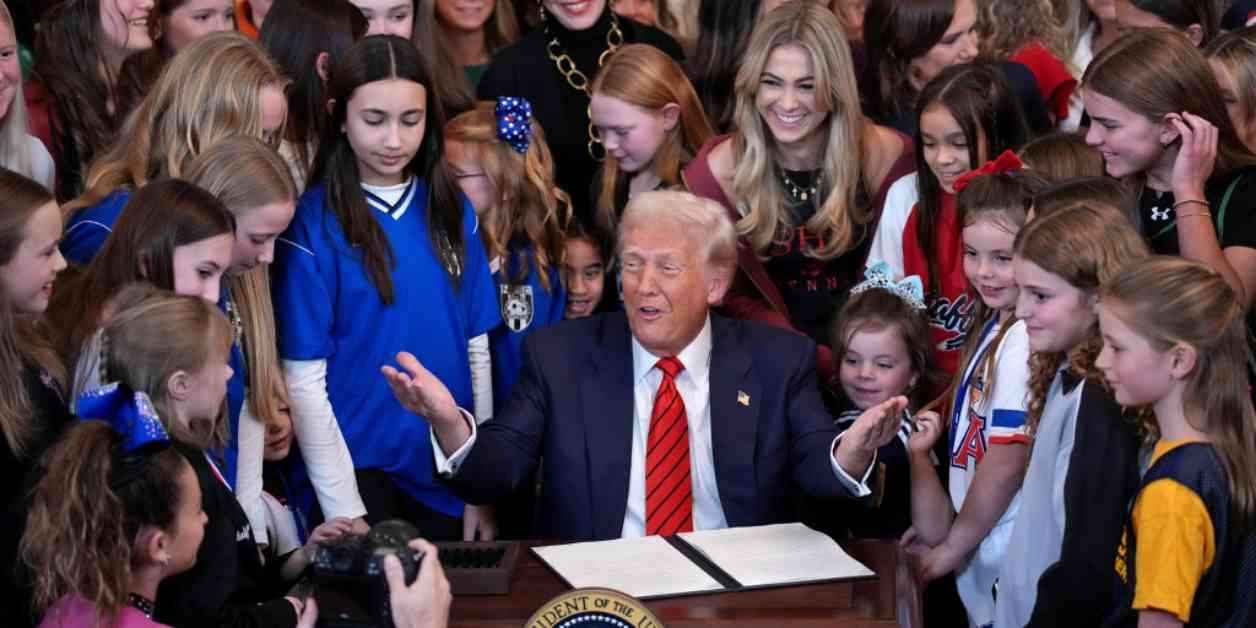In July, New Hampshire signed the Fairness in Women’s Sports Act into law, creating a wave of controversy and debate surrounding transgender athletes’ participation in sports. This contentious issue reached a boiling point with former President Trump’s executive order that challenged the Biden administration’s inclusive policies for transgender athletes. The clash of ideologies between the two administrations has sparked investigations and legal battles, raising questions about the future of transgender rights in sports at all levels.
Trump’s Executive Order and the Transgender Sports Landscape
During his first term, President Trump’s Education Department released federal guidelines that focused on implementing Title IX, specifically addressing sexual misconduct in schools. These guidelines provided added protections to students accused of misconduct, including the presumption of innocence and access to all evidence collected against them. However, the Biden administration later reinterpreted Title IX to include “gender identity,” offering protection to transgender athletes who wished to compete in sports aligned with their gender identity.
Trump’s executive order, in stark contrast, rejected the concept of “gender identity” and defined sex as an “immutable biological classification as either male or female.” The order explicitly excluded transgender students from participating in sports according to their gender identity. Schools and colleges that did not comply with this interpretation of Title IX risked losing federal funding, including grants for educational programs, sparking a nationwide debate on transgender rights in sports.
Investigations and Legal Battles
The Education Department initiated investigations at various institutions following Trump’s executive order. San Jose State University, the University of Pennsylvania, and the Massachusetts Interscholastic Athletic Association faced scrutiny over their handling of transgender athletes in sports programs. Notably, Lia Thomas, a former University of Pennsylvania student and transgender athlete, became a central figure in a lawsuit challenging her participation in NCAA competitions.
The NCAA also faced significant changes in its policies in response to Trump’s executive order. President Charlie Baker announced that only student-athletes assigned female at birth would be allowed to compete in collegiate competitions, citing the need for uniform eligibility standards across the board. These policy shifts signaled a broader shift in the landscape of college sports and transgender inclusion.
Implications and Global Impact
The repercussions of Trump’s executive order extended beyond U.S. borders, influencing international governing bodies such as World Athletics and the International Boxing Association. World Athletics recommended placing athletes with higher testosterone levels, assigned female at birth, under rules barring transgender athletes from female categories. The International Boxing Association, reacting to Trump’s order, filed criminal complaints against the International Olympic Committee regarding transgender athletes’ participation in the 2024 Paris Games.
President Trump’s aggressive stance on transgender athletic participation hinted at broader changes to Olympic policies, raising concerns about the future of transgender rights in international sports competitions. As the debate continues to unfold, the implications of these policies on transgender athletes’ inclusion and participation remain at the forefront of the global sports landscape.
In conclusion, the clash between Trump’s executive order and the Biden administration’s inclusive policies has sparked a contentious debate that transcends national boundaries. The future of transgender rights in sports hangs in the balance, with legal battles, investigations, and policy changes shaping the trajectory of athletic participation for transgender individuals. As the world watches these developments unfold, the intersection of politics, identity, and sports continues to redefine the boundaries of inclusivity and equality in the realm of competitive athletics.


